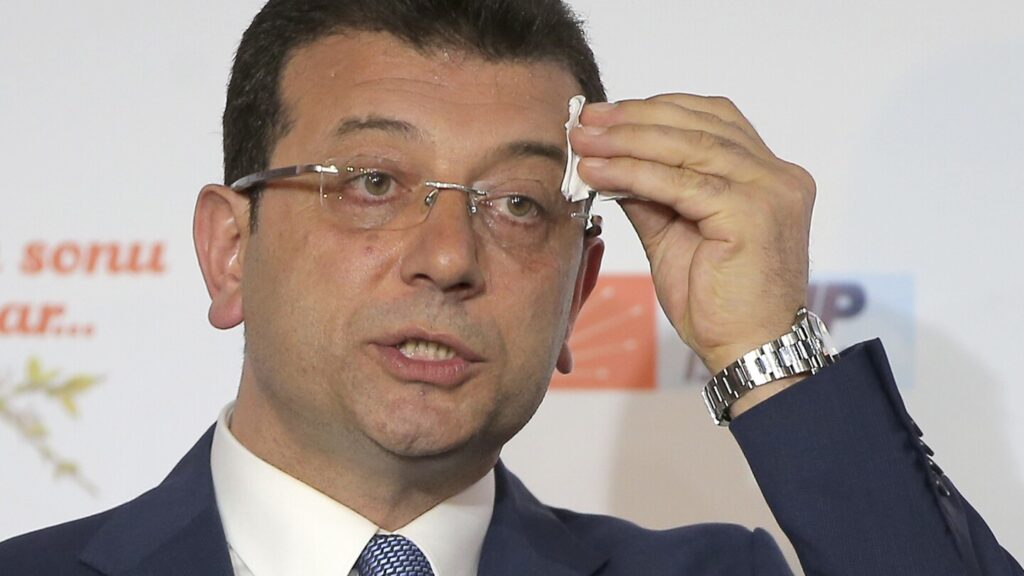
ISTANBUL (AP) — In a significant escalation of political tensions in Turkey, the mayors of three major cities in the country’s southern region were arrested on Saturday. This development, reported by state-run media, adds to a growing list of opposition figures detained since the high-profile imprisonment of Istanbul’s mayor in March.
Abdurrahman Tutdere, the mayor of Adiyaman, and Zeydan Karalar, who leads the Adana municipality, were apprehended during early morning raids, according to the Anadolu Agency. Both officials are prominent members of the main opposition Republican People’s Party (CHP). Meanwhile, the CHP mayor of Antalya, Muhittin Bocek, was detained alongside two other suspects in a separate bribery investigation conducted by the Antalya Chief Public Prosecutor’s Office.
Political Crackdown Intensifies
The arrests of these mayors are part of a broader crackdown that many observers believe is aimed at weakening Turkey’s main opposition party. Despite government assertions that the judiciary operates independently, the recent detention of Istanbul Mayor Ekrem Imamoglu sparked the largest street protests Turkey has witnessed in over a decade.
Zeydan Karalar was detained near Istanbul, while Abdurrahman Tutdere was taken into custody in Ankara, where he maintains a residence. Tutdere announced on social media platform X that he was being transferred to Istanbul. Concurrently, police conducted searches at municipal offices in Adana and Adiyaman.
Allegations of Corruption
The Istanbul Chief Public Prosecutor’s Office has implicated ten individuals, including Karalar and Tutdere, in an investigation concerning organized crime, bribery, and bid-rigging. Prosecutors allege that the mayors sought “unfair financial benefits” from business executives engaged with the municipalities. The accusations are reportedly based on evidence provided by a businessman detained for operating a criminal organization and distributing bribes.
“In a system where the law is bent and twisted according to politics, where justice is applied to one group and ignored by another, no one should expect us to trust the rule of law or believe in justice,” Mansur Yavas, the CHP mayor of Ankara, posted on X.
Opposition Under Pressure
The arrests are the latest in a series of detentions targeting officials from CHP-controlled municipalities. In response, CHP Chairman Ozgur Ozel convened a meeting with the party’s senior leadership. The CHP’s criticism of the government’s actions highlights a perceived double standard, questioning why municipalities aligned with President Recep Tayyip Erdogan’s party are not subjected to similar judicial scrutiny.
Ekrem Imamoglu, regarded as a formidable challenger to Erdogan’s 22-year rule, was imprisoned four months ago on corruption charges. The former CHP mayor of Izmir, along with 137 municipal officials, was detained earlier this week for alleged tender-rigging and fraud. On Friday, ex-Mayor Tunc Soyer and 59 others were jailed pending trial, a move described by Soyer’s lawyer as “a clearly unjust, unlawful and politically motivated decision.”
Historical Context and Future Implications
This wave of arrests follows the CHP’s significant gains in local elections last year, which saw Adiyaman, a city severely impacted by the 2023 earthquake, and other traditional strongholds of Erdogan’s party, shift to opposition control. The timing of these detentions raises questions about the political motivations behind them, especially as Turkey approaches its next election cycle, scheduled for 2028 but potentially occurring sooner.
According to political analyst Dr. Selin Aydin, “The pattern of arrests suggests a strategic effort to undermine the opposition’s ability to organize and challenge the ruling party effectively.”
The ongoing political crackdown underscores the fraught landscape of Turkish politics, where the battle for control extends beyond the ballot box to the courts and streets. As the nation grapples with these tensions, the implications for Turkey’s democratic institutions and its international standing remain uncertain.






